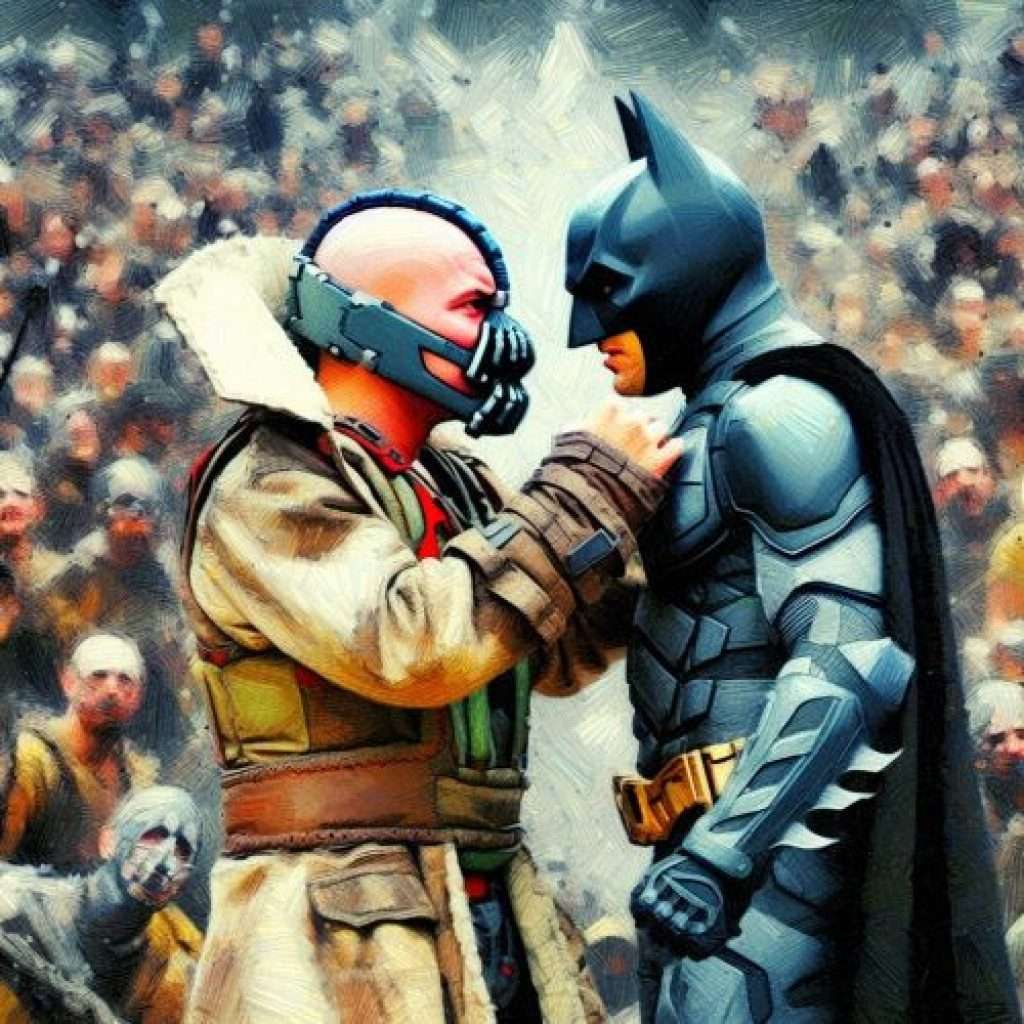“The Dark Knight Rises,” directed by Christopher Nolan, is a cinematic masterpiece that transcends cultural boundaries, exploring complex themes of ideological conflict and moral ambiguity. This article offers a dual perspective, examining the film’s universal themes through a global lens while also delving into its resonance within the context of Sri Lankan culture and the pursuit of spiritual liberation.
The Ideological Spectrum: Globally, “The Dark Knight Rises” presents a nuanced portrayal of ideological conflict, with characters representing diverse philosophical positions. Batman embodies the ideals of liberalism, advocating for individual freedoms, justice, and the rule of law. Conversely, Bane emerges as a symbol of radical communism, espousing notions of class struggle, equality, and revolutionary upheaval.
In Sri Lanka, the film’s exploration of ideological conflict resonates with the cultural context of Sinhala Buddhist liberalism, which encompasses principles of individual freedom, moral responsibility, and the quest for spiritual liberation. Rooted in Buddhist teachings, this ideology emphasizes the attainment of Nirvana, the ultimate state of enlightenment and liberation from suffering.
Interpreting Characters Through Global and Sri Lankan Perspectives: Batman’s struggle against Bane reflects the eternal battle between light and darkness, justice and tyranny, echoing universal themes of heroism and villainy. However, when viewed through the prism of Sinhala Buddhist liberalism, Batman’s quest for justice parallels the archetype of the Bodhisattva, embodying principles of righteousness and moral duty in the pursuit of collective well-being.
Bane’s descent into darkness symbolizes the pitfalls of ignorance and attachment, reminiscent of the Buddhist concept of Tanha (craving) and Dukkha (suffering). His quest for power and revolution serves as a cautionary tale against the illusions of materialism and egoism, resonating with the broader themes of ideological extremism and the corrupting influence of power.
The Pursuit of Nirvana: While globally, the characters’ struggles reflect ideological conflicts and moral dilemmas, in Sri Lanka, the ultimate goal of liberation transcends earthly power and political ideologies. Sinhala Buddhist liberalism seeks to achieve Nirvana, the cessation of suffering and the attainment of spiritual enlightenment. “The Dark Knight Rises” serves as a metaphorical journey towards this higher state of consciousness, where the battle between good and evil culminates in the triumph of wisdom and compassion.
“The Dark Knight Rises” offers a compelling narrative that resonates with audiences worldwide, exploring universal themes of ideological conflict, moral ambiguity, and the eternal struggle between good and evil. Through a dual perspective, we can appreciate the film’s resonance within the global context of liberalism and communism while also exploring its deeper significance within the cultural framework of Sinhala Buddhist liberalism and the pursuit of spiritual liberation. In doing so, we gain insight into the complexities of human nature, the universality of moral principles, and the enduring quest for enlightenment and collective well-being.
Film Review by Palitha Ariyarathna
Comparing a Bodhisattva and Batman reveals profound differences in their origins and missions:
Bodhisattva: In Buddhism, a Bodhisattva is an enlightened being who delays entering Nirvana to assist others in achieving enlightenment. They embody boundless compassion and guide beings towards liberation from suffering. Batman: Batman, a fictional character, is the alter ego of Bruce Wayne, driven by the trauma of his parents’ murder to fight crime in Gotham City. His mission is rooted in personal justice and protecting the innocent within his city.
Enjoy watching the film on Dialog TV at 8 PM today!

